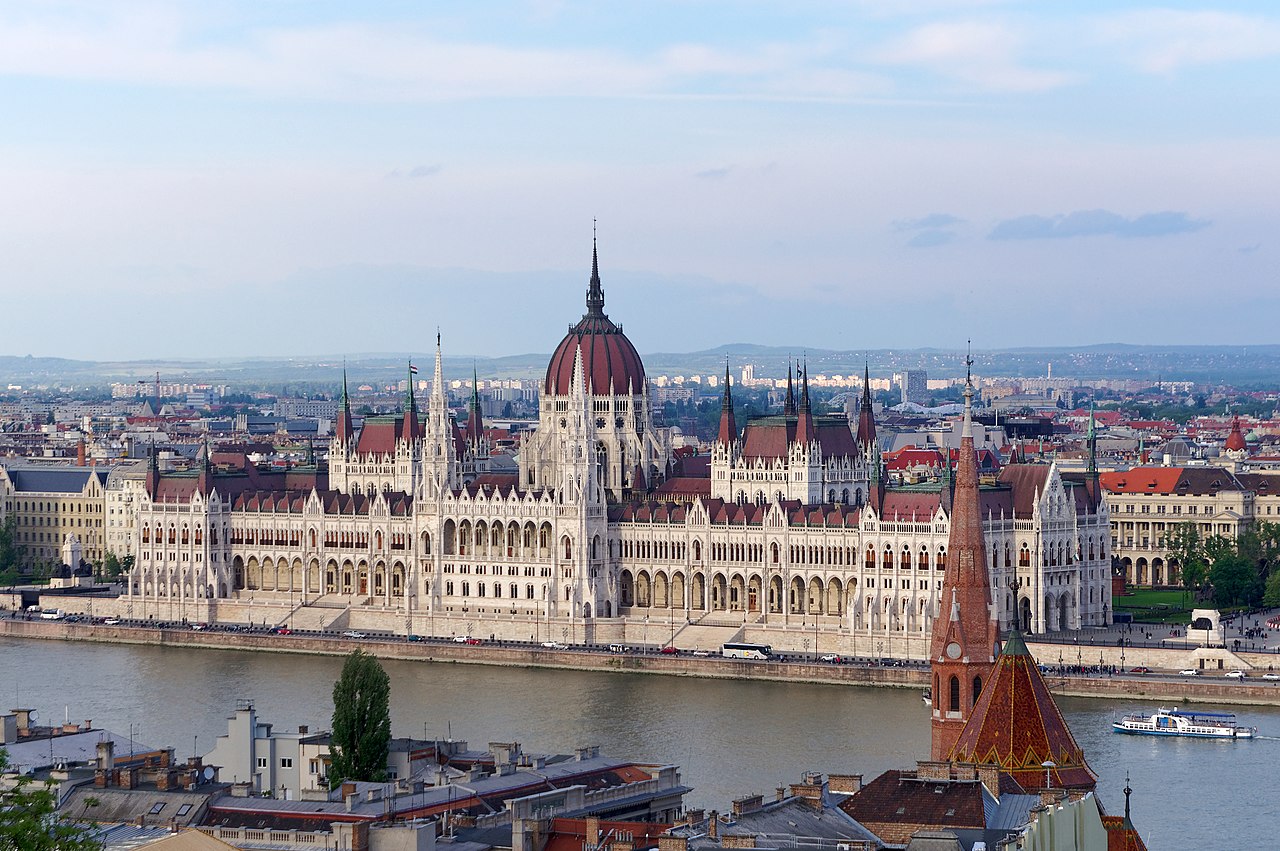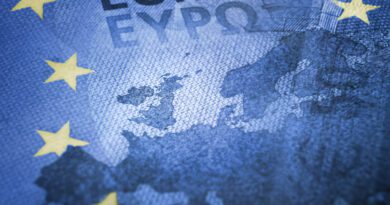The German threat to Poland: Will we allow ourselves to become a vassal again?

For Poles, the accusations and emotions of the war on symbols, fueled by political tribes, have completely overshadowed the political offensive of our western neighbor. Meanwhile, in just a little over a week, the Germans have given several significant signals that Poland should notice and take heed of.
Rafał A. Ziemkiewicz
Let’s start with the lively activity of Ambassador Thomas Bagger. In successive statements to the German and Polish press, as well as on social media, he accused Poland of paying “billions” for oil and other energy resources to finance Russian aggression against Ukraine to at least a comparable degree to Germany. The fact, however, that it was Germany that built the two Nord Stream pipes and by various methods forced all of Europe to depend on Russian gas, considered under their insistence as the “planet-saving” fuel, was downplayed by the ambassador with the statement that this was a mistake, but that Germany in recent months has greatly changed its approach to Russia, so there is nothing more to talk about (as well as the “closed” matter of reparations for war crimes committed in Poland, the unnecessary raising of which harms reconciliation). It’s worth adding that in sharing Poland’s culpability for financing Putin’s armaments, Ambassador Bagger spoke almost word for word with Civic Platform politicians and its media; the accusation that the Polish government is artificially creating Germany as an enemy, when in fact it is friendly to Poland, and there is no alternative to close Polish-German cooperation, shows similar consistency.
The latter claim was raised by the chairman of Germany’s ruling SPD party, Lars Klingbeil, whose visit to Warsaw went almost completely unreported in the Polish media, but was widely reported in Germany. Commentators in Germany hailed the speech, delivered by Klingbeil during an Ebert Foundation-funded session at Warsaw’s Polin Museum, as even groundbreaking, marking a new Ostpolitik and opening a new chapter in relations with Central European countries. “A new partnership with Eastern and Central Europe – but under German leadership,” the daily Die Welt proclaimed.
What was it that the SPD chairman said? Seemingly mere platitudes, which implied that Germany was ready to stand at the head of our region and take Central European states under special care. Somehow this sounded symmetrical to Chancellor Scholz’s repeated declarations about Berlin’s readiness to take the lead over Western Europe and guide it through the process of deepening integration, building a new unified system, centralizing the continent’s governance and saving the planet from the energy independence of individual countries. However, this was not the most important thing Klingbeil said, but what he failed to mention – well, not a word was said this time about the need to include Russian interests in the new architecture of the region. And until recently, this was almost a mantra in every speech of every major German politician.
Accusing and belittling
There is another thread in the media clamor of the German ambassador and the prominent representatives of German politics that draws attention: for some time now the Germans have not only been spending a great deal of money telling the world that no one in Europe is helping Ukraine as generously and as intensively as they are, but they have also been reacting extremely nervously to any attention drawn to the fact that they are proving this propaganda thesis by multiplying the promises they are making to Ukraine with tricks of “creative accounting,” and at times even lying through their teeth. What is particularly distressing for us, Germany is trying to highlight its alleged commitment to supporting Ukraine in the eyes of the world by belittling what Poland is doing for Ukraine and is proud of. In the leading German media, opinions are repeated that Poland is giving fighting Ukraine scrap, tanks from the junkyard, and armaments that explode in soldiers’ hands (analogous publications in the Polish Onet.pl are just an echo of “a flip of the switch” at the headquarters) and that in no way can Polish aid be put on par with the modern weapons promised by Germany.
Accompanying these publications is an intensification in accusing Poland of crimes on our eastern border. Operation Sluice has been going on for more than a year and has not been reported much in the German media so far. Perhaps this was determined by the realization that we are in fact defending Germany here, since Putin’s and Lukashenko’s “refugees,” after all, are by no means trying or intending to settle in Poland. This has clearly changed in recent weeks. We have a veritable rash of lamentations over “refugees” allegedly dying en masse in Polish forests and being secretly buried by forest guards in mass graves. All of this, in one way or another, is leading towards the moral: “Poles may have done something for the Ukrainian refugees there, but this only proves what great and incurable racists they are – they only help whites and those culturally close to them, but persecute people of color ruthlessly.” Here, too, an important element of propaganda, in which some German centers go so far as to call Poles a “nation of murderers,” is the activation of influence agents in Poland. They are not only the main sources of these “revelations,” but also their lending credence to the anti-Polish narrative before Western public opinion – just to point out MEP Ochojska and or organization called Grupa Granica (“the Border Group”), presented as some noble brotherhood of fighters of conscience, unable to come to terms with the inhuman regime prevailing in their country. Unfortunately, it is not Polish publications and official statements, but precisely these kinds of accusations that are resonating in the Western European media at the moment.
These and many minor signals determine Germany’s information policy toward the region, which in the tradition of politics there is associated with a political project called Mitteleuropa. On the one hand, Germany is discrediting Poland with greater intensity than ever, openly acknowledging our “growing importance,” but focusing attention on various “buts” designed to prove that Poland has already done all the good it could, and is not capable of anything more – while on the other hand, we have increasingly clear declarations rejecting the previous policy of “respecting Russian interests in the region” as “mistakes.”
Focusing attention on the US
Why this change? What has happened that Germany, which for many months was primarily concerned with “keeping the door open for Russia,” with presenting itself in its eyes as a partner ready, in the name of the “realistic” belief that “you can’t win with Russia,” especially its destruction, to return, as soon as it becomes possible, to the mutually beneficial status quo ante – are now clearly trying to present themselves to the West as the frontrunner in supporting Ukraine and a country ready to “develop” its former sphere of influence, implicitly – after the former hegemon has been pushed out of it?
During his visit to Warsaw, U.S. President Joe Biden very firmly indicated the goals of his policy: the eastern border of the West is to be the current eastern border of Belarus and Ukraine, Russia is to be pushed deeper into Asia. This is a policy that stands in extreme contradiction to the basic assumption of German policy after February 24th, 2022 – that “Russia must be defeated, but not crushed” (these are the acerbic words of the French president, but fully in line with the conduct of Olaf Scholz). Along these lines, Germany has insisted firmly that the war must end with some sort of truce, followed by a “reset” – at best preceded by a more or less cosmetic “perestroika” in the Kremlin, but if that doesn’t happen, then with “Russia as it is.”
Several factors seem to have changed German attitudes. First, the aforementioned firmness shown on the issue of the “de-imperialization” of Russia by the US. Second, the defeats of the Russian army, which for nine months has been ramming fruitlessly and with huge losses headlong into the fortifications of Bakhmut. Both of these issues, however, were met with a gesture from Washington that went completely unnoticed in our country: just somewhere along the margins of the economic services news flashed about the US government’s declared readiness to place large arms orders for German industry, including components for high-tech air defense systems. As if in response, there have been declarations from the German side of its willingness to build a terminal to receive U.S. gas and to conclude relevant long-term contracts in this regard.
A new European “Pax Americana”
Admittedly, in parallel, Berlin persists in pro-Russian positions, such as torpedoing plans to include a provision that Russia must pay reparations for the destruction and crimes in Ukraine in official EU documents. But it is increasingly clearly a game of two pianos. The Germans, who, unlike the Poles, think over their policies, define their long-term interests and pursue them with all the cynicism they can muster, have clearly begun to signal their readiness to abandon the pipe dream of a return to the neo-Bismarckian order set by Merkel’s policies and to find themselves in a new European “Pax Americana” – at the price of leaving the eastern area to them as a sphere of influence.
Part of this policy is to show America that Poland, weak, divisive and committing racist crimes against refugees and sexual minorities, cannot be taken seriously as a candidate for a US strategic partner in the region. Maybe someday, after being civilized by German tutelage, it too will grow up to be taken seriously – but for now there is only one such candidate.
This new German policy is a great danger for us: its possible success would simply mean closing the historical “window” and squandering the chance to permanently break out as a “principal” state. All the more so because it hits fertile ground in Washington. If Poland does not realize this and does not immediately take up the struggle for leadership in the region, does not activate the mechanisms of political lobbying among allies, and does not come up with concrete proposals for linking the interests of the countries of the eastern “nine,” then our proverbial five minutes in world politics may indeed turn out to be only five minutes, after which we will be left with only lip service and other platitudes.
This article was published in March 2023 in “Do Rzeczy” magazine.



